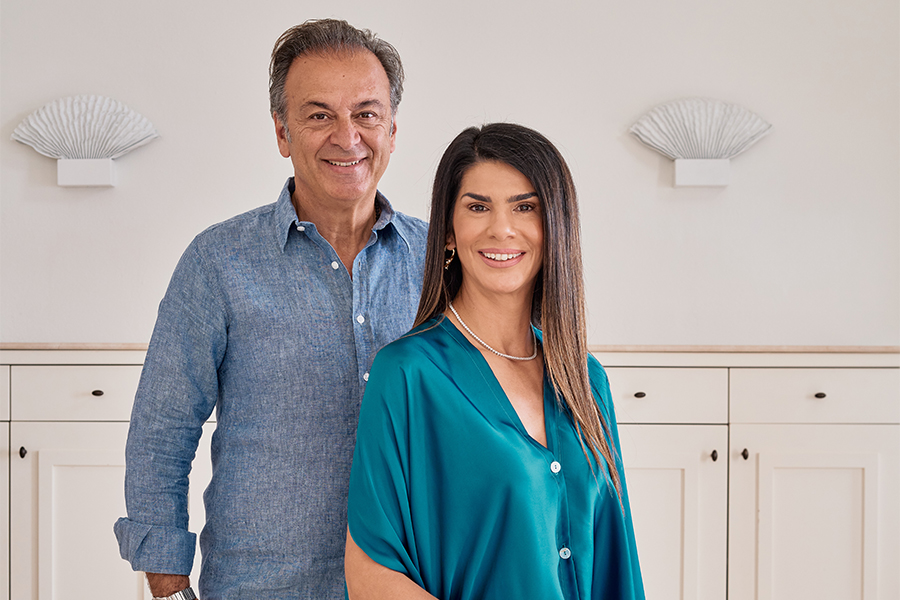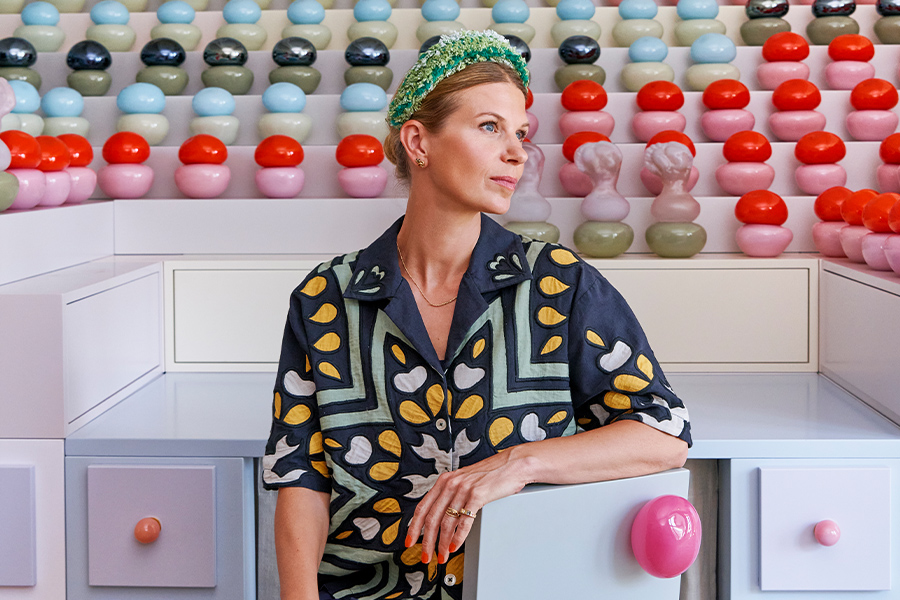Akaryn Hotel Group of course has a proper reservations department, but one afternoon, Anchalika Kijkanakorn, founder and managing director of the Bangkok-based portfolio of soon-to-be six small, luxe Southeast Asian resorts, responded to an email request directly. “Not that I do that all the time,” she says, “but I still like to be in touch with my customers and know what they want so that I can build the right hotels.”
Providing guests exactly what they desire reflects Kijkanakorn’s intuitive nature, which has steered her right since 2003, when she gave up a 10-year stint working for global financial giant GE Capital to transform her extended family’s vacation home into her first hotel, the Aleenta Hua Hin Resort & Spa on Thailand’s east coast, merely because she “wanted to create a place that I would personally like to go to.” Back then, when the big brands she sought out on business trips dominated the market, the concept of boutique or small luxury hotels wasn’t yet the norm in Thailand, she recalls. “I like to be part of the location, to feel like I’ve arrived at the place I’ve come to visit. I want to be part of the scene, yet I’m no longer 18 backpacking with a Europass and sleeping on the train,” she explains. Hotels should have “all the comforts that I deserve,” but also be private with unobtrusive service. “It should be there when I want it, and I should not see anybody when I don’t want to,” she explains.
That philosophy spawned the Aleenta, and a new definition of barefoot luxury in Asia, as well as a longtime collaboration with Paisarn Krusong of Bangkok’s Simple Space Design. The resort features whitewashed buildings crowned with thatched roofs and guestrooms that come with private plunge pools. “We were called the first boutique hotel in Thailand. Most of the people who heard about us didn’t know what to do because no one could believe that I would open something with 10 rooms,” she says. It’s now grown to 23 rooms, just as sister retreat Aleenta Phuket Resort & Spa, which debuted with 32, now has 69 suites and villas deftly integrating the outdoors. Of the three brands in her collection, Aleenta—meaning “reward of life” in Sanskrit—is the one Kijkanakorn says is closest to her heart. To her, these hotels are “places where you come and give yourself a little pat on the shoulder because you’ve done well.”
Kijkanakorn, who has served on the Small Luxury Hotels of the World board of directors for the past nine years, and recently as chairperson for four, has diversified her roster with the Akyra Manor Chiang Mai, an upbeat hotel with a rooftop bar and 30 suites gathered around a courtyard from Singapore-based Manor Group. Named after her son, Akyra translates to “source of light,” and so the brand showcases that energy. “It’s passionate, it’s strong, it’s striking, it’s active,” she points out. These getaways include the just-opened, 59-room Akyra Beach Club Phuket from Simple Space, featuring rich sapphire hues and Andaman Sea views. The forthcoming 148-room Akyra Thonglor Bangkok, slated for January 2018, reimagines serviced apartments in a building originally by Bangkok’s Begray Architects that will nod to the artsy, gallery-packed neighborhood where it is found.
If the colorful design schemes of Akyra strike a chord with Millennials, Akaryn—a tribute to Kijkanakorn’s other son that means “ray of light”—is a more introspective and Zen band, attracting mature, high-end travelers. Consider the palatial, 32-room President by Akaryn in Vientiane, Laos, opening this summer. Bangkok’s Pathree Design paired high ceilings with marble to recreate an elegant French Colonial atmosphere. Like she first did 14 years ago in Thailand, Kijkanakorn brings something bold to the burgeoning Laotian hospitality landscape: Vientiane’s first 5-Star, luxury oasis, where she says it’s easy to picture a dignitary staying. “The hotel is intricate and there is so much detail, work, and thought that has gone into the construction, with a lot of wood and stone carvings, and gilded elements.”
There is more growth ahead, with a hotel development in Vietnam on the boards, and interest in nearby locations like Myanmar and Cambodia. If a potential property doesn’t jive with the ethos of her brands, or the locale is too far for her to logistically operate from, Kijkanakorn will simply walk away. “A lot of times when I make a decision, it’s not what the numbers say—coming from a finance background, I can make any spreadsheet work the way I want it to—but what feels right in my gut” usually does prove to work, she explains.
With each property she opens, Kijkanakorn places a priority on the environment. That’s why she founded the Pure Blue Foundation in tandem with the inaugural Aleenta, tasking hotel teams with ecological improvement projects. For instance, she emphasizes the importance of clean beaches to drive up tourism and the economy. “If you tell people in a language they understand, then they start to listen,” she says of breaking the ice with neighbors. “We wanted to work with the local community to protect where we make a living and ensure that it continues to be there
for our kids to enjoy in the future. All the places that we go to are places that we fall in love with, and I don’t want to be a cause for them to deteriorate.”


